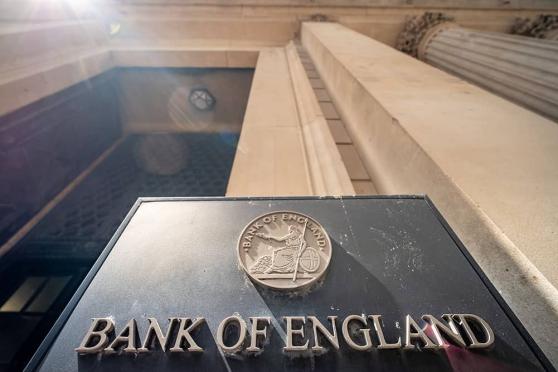PoundSterlingLIVE - The Bank of England should cut interest rates to prevent the UK from falling into recession, according to the shadow Monetary Policy Committee at the IEA (Institute of Economic Affairs).
The think tank says a sharp decline in UK money supply suggests the Bank of England might have 'over-corrected' by raising Bank Rate to 5.25%.
"There is mounting evidence that the UK’s monetary policy is too tight and could lead to price deflation in a few years and potential recession in the interim. The Bank of England should act now by lowering interest rates," says Trevor Williams, Chair of the Shadow Monetary Policy Committee and former chief economist at Lloyds (LON:LLOY) Bank.
The IEA's shadow MPC - which is a group of independent economists - voted 7-2 to cut Bank Rate and also voted to halt or scale down (8-1) Quantitative Tightening (QT).
One member even voted to resume Quantitative Easing (QE).
A cut would be unexpected by the market and a significant selloff in the value of the Pound would ensue.
The Bank of England has raised interest rates in order to cool the domestic economy to the extent that inflation falls back to the 2.0% target.
Inflation is falling and will continue to fall according to the Bank's August forecasts, but these forecasts warn it will only be in 2025 when inflation falls back to the 2.0% target.
The Bank will update its forecasts when it delivers its latest policy decision and quarterly Monetary Policy Report on Thursday.
The market is fully priced for rates to be left unchanged as the Bank has said it is prepared to stand back and observe the impact of existing rate hikes work through the economy.
The IEA's shadow MPC says the Bank has done enough to ensure UK inflation significantly undershoots the 2% target over the coming few years, with a risk of deflation slowing down economic activity.
Of particular concern to the shadow MPC is broad money supply (M4) turning sharply negative, meaning the availability of credit is contracting.
There has been a fall in the broad measure of money of £31 billion in September, following declines in the previous three months and a 12-month contraction of 4.2 per cent.
Committee members also raised concerns that the Bank’s forecasts are overly optimistic and need to be updated to reflect the slowing economy — noting that the UK economy is ‘flirting with contraction’ and that unemployment has ticked up to its highest level since 2017, excluding the Covid-19 pandemic.
"The Bank’s overly tight monetary stance is pushing mortgage lending down, companies are struggling to repay debt, insolvencies are rising, and households are withdrawing money to meet higher repayments," says Williams.
He warns that the Bank is underestimating the importance of the money supply and risks repeating the mistake that caused high inflation.
"It is essential for the Bank to ‘look through’ the current level of inflation and focus on where it could be in two years," he adds.
An original version of this article can be viewed at Pound Sterling Live
